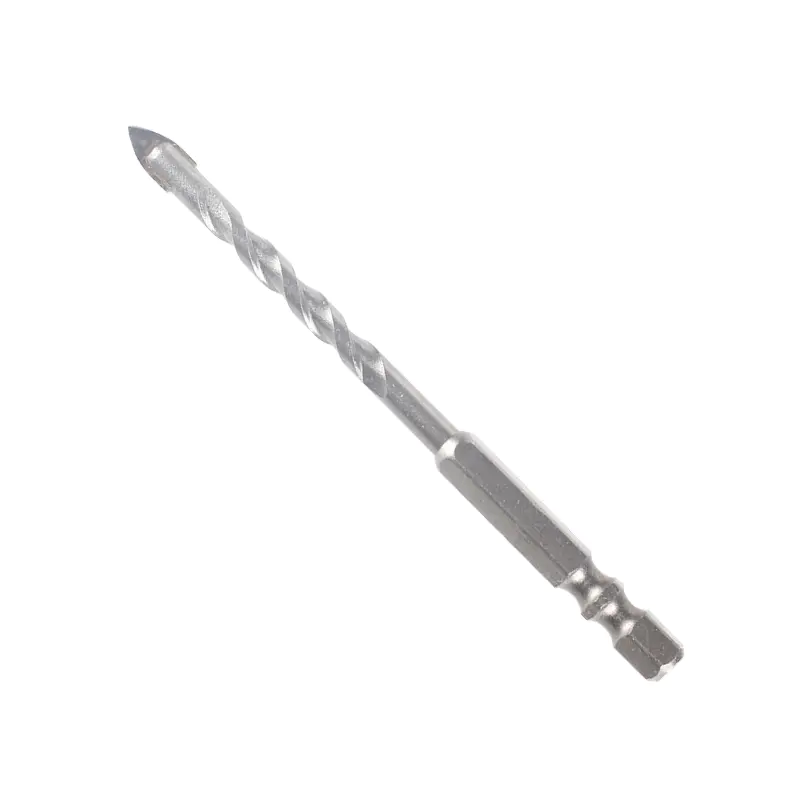2025-07-04
Importance of Hole Diameter Precision in Glass Drilling
When working with glass materials, achieving precise hole diameters is critical for ensuring proper fit and function in installations such as glass panels, mirrors, or decorative elements. The hole size affects everything from the stability of mounted hardware to the aesthetic quality of the finished product. Glass Drill Bits are specially designed to drill through brittle materials while reducing the risk of cracks and chips, but their ability to maintain strict diameter tolerances depends on several factors including bit quality, drilling technique, and material characteristics.

Design Features of Glass Drill Bits That Influence Precision
Glass Drill Bits typically have a spear-shaped tip or a diamond-coated cutting edge, both intended to provide smooth, controlled penetration without exerting excessive pressure that could damage the glass. The geometry of the bit ensures that drilling initiates accurately at the desired point and proceeds evenly, reducing deviation from the intended hole size. Additionally, high-quality bits are manufactured with strict dimensional controls, contributing to consistent hole diameters across multiple uses.
Factors Affecting Hole Diameter Accuracy
The precision of holes drilled with a Glass Drill Bit can be influenced by drilling speed, feed rate, and cooling methods. Using excessive speed or force can cause bit wandering or glass cracking, resulting in larger or irregular holes. Adequate cooling, usually with water, helps maintain bit temperature and reduces material stress, which supports cleaner, more accurate holes. The rigidity of the drilling setup, such as the use of clamps or guides, also plays a crucial role in maintaining hole placement and diameter consistency.
Material Thickness and Its Impact on Hole Quality
Thicker glass materials can present challenges to maintaining hole diameter precision due to the increased risk of bit deflection and internal stress during drilling. Thicker sections require slower drilling speeds and careful progression to prevent breakage or enlargement of the hole. Conversely, thinner glass tends to yield more precise holes but is more prone to chipping if not handled delicately. Selecting the appropriate Glass Drill Bit size and type for the glass thickness is vital to achieving desired results.
Typical Tolerances Achievable with Glass Drill Bits
Under suitable conditions, they can produce holes with diameter variations within a few thousandths of an inch (or hundredths of a millimeter) relative to the bit size. This level of precision is generally sufficient for most architectural, craft, and industrial glass applications. However, extreme precision requirements may necessitate secondary finishing processes such as reaming or polishing to achieve well-uniform hole dimensions and smooth edges.
Comparison to Other Drilling Methods
Compared to traditional twist drill bits or abrasive drilling techniques, Glass Drill Bits provide good control over hole size and quality in glass materials. Twist bits tend to cause more chipping and less accurate hole diameters due to their design and cutting action. Abrasive methods can create large tolerances and rough edges, making it preferable when accuracy and surface finish are priorities.
Maintenance and Bit Wear Effects on Precision
As Glass Drill Bits wear down, their cutting edges become less sharp, which can decrease hole diameter accuracy and increase the risk of cracking or chipping. Regular inspection and timely replacement or sharpening of bits help maintain consistent hole quality. Proper storage and usage further extend the effective life of the drill bits and preserve their precision.
Conclusion: Achieving High Precision with Proper Technique and Quality Bits
In conclusion, the hole diameter precision of a Glass Drill Bit depends largely on the bit’s design, drilling parameters, and glass material properties. When used correctly with adequate cooling and controlled feed rates, these specialized bits can produce highly accurate and clean holes suitable for a wide range of applications. Maintaining the bits and employing proper drilling techniques are essential to ensuring consistent, precise results in glass drilling projects.